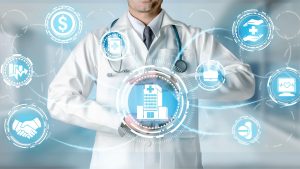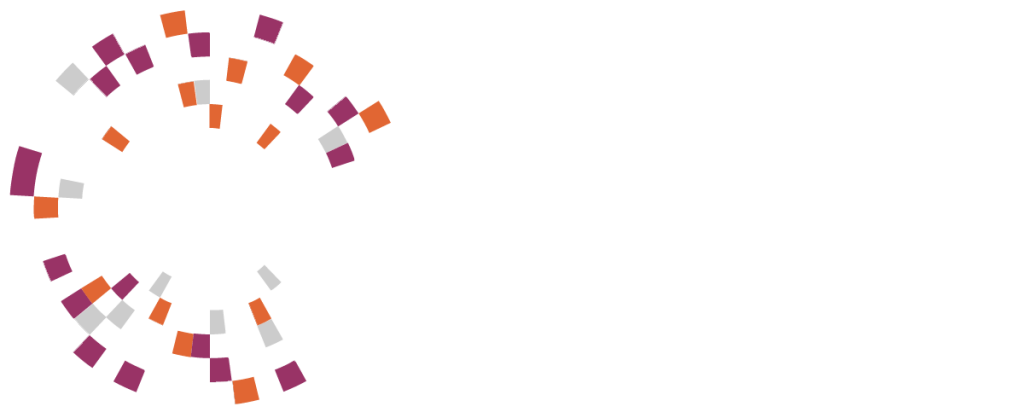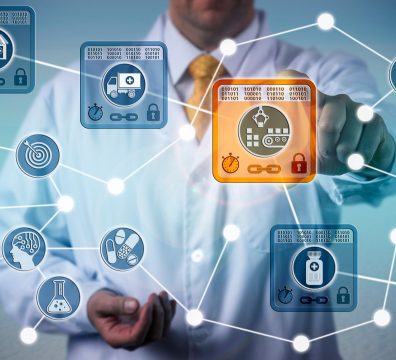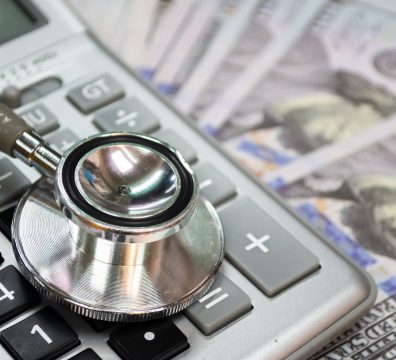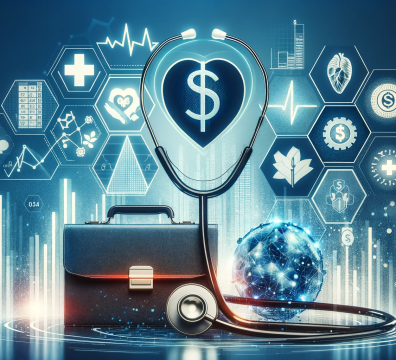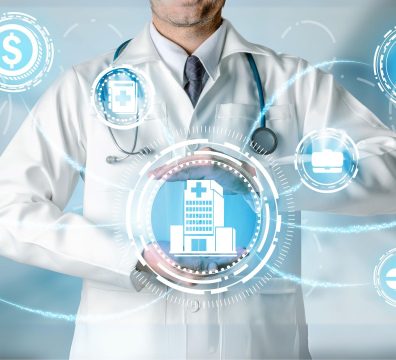Introduction
The pharmaceutical industry has undergone a transformation in its operational dynamics, driven by the rapid technological advancements and investments. This paradigm shift is particularly evident in the realm of outsourcing, where technology has emerged as a key force reshaping the pharma outsourcing ecosystem.
This blog article aims to explore the diverse ways in which technology is influencing the pharma outsourcing landscape, spanning from the initial stages of drug discovery and development to the intricacies of manufacturing and beyond.
I. Evolution of Pharma Outsourcing:
A. Historical Perspective
Tracing the historical evolution of pharma outsourcing is crucial for understanding the current impact of technology. The pharma outsourcing was fueled by cost considerations and has matured into a strategic imperative encompassing a broad spectrum of services.
B. Rise of Contract Research Organizations (CROs)
The paradigm shift witnessed with the emergence of Contract Research Organizations (CROs) has empowered pharmaceutical companies to tap into external expertise for various critical functions, including clinical trials, regulatory affairs, and research activities.
C. Expansion to Contract Manufacturing Organizations (CMOs)
As the industry progressed, Contract Manufacturing Organizations (CMOs) gained prominence, enabling pharmaceutical companies to outsource manufacturing processes for enhanced efficiency, flexibility, and cost-effectiveness.
II. Technological Infusion in Drug Discovery
A. High-Throughput Screening (HTS) and Robotics
The revolution in drug discovery processes brought about by advancements in robotics and automation is noteworthy. High-Throughput Screening (HTS) technologies, driven by automation, facilitate the rapid testing of thousands of compounds, thereby expediting the drug discovery timeline.
B. Artificial Intelligence (AI) and Machine Learning (ML)
The transformative impact of AI and ML algorithms is evident in how pharmaceutical companies identify potential drug candidates. These technologies analyze vast datasets, predicting molecular interactions and significantly enhancing the efficiency of target identification and validation.
C. Virtual Drug Development Platforms
Enabled by cloud computing, virtual drug development platforms facilitate seamless collaboration among global teams, enhancing connectivity, accelerating decision-making, and streamlining the drug development pipeline.
III. Data Management and Analytics
A. Big Data in Clinical Trials
The utilization of Big Data analytics in clinical trials enhances the interpretation of complex datasets, providing valuable insights into patient demographics, treatment responses, and potential adverse events. This data-driven approach optimizes trial designs and improves overall trial efficiency.
B. Real-World Evidence (RWE) Integration
Pharma outsourcing practices integrating Real-World Evidence (RWE) enable companies to gather insights from diverse sources, including electronic health records and patient registries. This approach supports post-marketing surveillance and contributes to evidence-based decision-making.
C. Blockchain for Transparency
Blockchain technology ensures transparency and security in the management of clinical trial data by providing an immutable and decentralized ledger. This minimizes data manipulation risks and enhances the integrity of information throughout the drug development lifecycle.
IV. Regulatory Technology (RegTech)
A. Electronic Data Capture (EDC) Systems
Electronic Data Capture (EDC) systems streamline the collection and management of clinical trial data, ensuring accuracy and compliance with regulatory standards. These systems enhance data quality and contribute to the overall reliability of trial results.
B. Regulatory Information Management (RIM) Systems
Leveraging technology, Regulatory Information Management (RIM) systems centralize and manage regulatory information, facilitating efficient communication with regulatory authorities. This accelerates submissions and ensures compliance with evolving regulatory requirements.
C. eClinical Solutions
The integration of eClinical solutions, including electronic Trial Master File (eTMF) systems, electronic Informed Consent (eIC) platforms, and interactive response technology (IRT), automates various aspects of clinical trial management, fostering a more efficient and compliant regulatory environment.
V. Advancements in Drug Manufacturing
A. Smart Manufacturing and Industry 4.0
Aligned with the principles of Industry 4.0, smart manufacturing introduces connectivity and data exchange into pharmaceutical manufacturing processes. Automation, IoT devices, and data analytics optimize production, minimize errors, and enhance overall efficiency.
B. Continuous Manufacturing
The shift from traditional batch manufacturing to continuous manufacturing processes reduces production time and resource consumption. Facilitated by advanced technologies, continuous manufacturing ensures a more consistent product quality and improved cost-effectiveness.
C. Quality by Design (QbD) Implementation:
Quality by Design (QbD) principles, supported by technological tools, enable a proactive approach to quality assurance in drug manufacturing. This method emphasizes the design and control of manufacturing processes, leading to higher product quality and compliance with regulatory standards.
VI. Supply Chain Optimization
A. Track-and-Trace Technologies
In response to the growing challenges of counterfeit drugs and supply chain complexities, track-and-trace technologies, such as RFID and barcoding, enhance visibility and traceability throughout the pharmaceutical supply chain.
B. Internet of Things (IoT) in Logistics:
IoT applications in logistics and distribution enhance real-time monitoring of pharmaceutical shipments. IoT sensors provide data on temperature, humidity, and other environmental factors, ensuring the integrity of pharmaceutical products during transit.
C. Predictive Analytics for Demand Forecasting
Predictive analytics models, leveraging machine learning algorithms, analyze historical data and market trends to forecast demand accurately. This technology-driven approach optimizes inventory management, reduces stockouts, and minimizes excess inventory costs.
VII. Future Trends and Emerging Technologies
A. 3D Printing in Drug Manufacturing
The integration of 3D printing technologies in drug manufacturing holds the potential to revolutionize dosage forms. Personalized medicine and complex drug delivery systems are areas where 3D printing is poised to make significant contributions.
B. Gene and Cell Therapies
Advancements in gene and cell therapies are redefining the landscape of pharmaceutical development. The emergence of technologies like CRISPR and CAR-T cell therapy reflects a shift towards highly personalized and targeted treatment approaches.
C. Augmented Reality (AR) and Virtual Reality (VR) in Training
AR and VR technologies are increasingly being used for training purposes in the pharmaceutical industry. From virtual laboratories to immersive training simulations, these technologies enhance the skills and knowledge of personnel involved in drug development and manufacturing.
VIII. Challenges and Considerations
A. Data Security and Privacy Concerns
The integration of advanced technologies raises concerns about the security and privacy of sensitive healthcare data. Ensuring robust cybersecurity measures and compliance with data protection regulations is paramount.
B. Regulatory Compliance and Standardization
Navigating the developing regulatory landscape and ensuring compliance with diverse international standards present challenges. Establishing global standards for technology implementation in pharma outsourcing is essential for harmonized practices.
C. Talent Acquisition and Training
The adoption of cutting-edge technologies requires a skilled workforce. Talent acquisition and ongoing training programs are essential to equip personnel with the expertise needed to leverage technology effectively in pharmaceutical operations.
IX. Case Studies and Success Stories
A. Application of AI in Drug Discovery
Explore case studies highlighting the successful application of artificial intelligence in identifying novel drug candidates, streamlining the drug discovery process, and accelerating time-to-market.
B. IoT Implementation in Supply Chain
Examine real-world examples of how pharmaceutical companies have successfully implemented IoT solutions to enhance visibility and traceability in their supply chains, ensuring the integrity of products from manufacturing to delivery.
C. Smart Manufacturing in Pharma
Delve into case studies showcasing the implementation of smart manufacturing principles in pharmaceutical production, resulting in improved operational efficiency, reduced costs, and enhanced product quality.
About Liquid Sample
Liquid Sample is the premier qualitative research and expert interviewing firm, founded in 2010. We leverage AI-led precise database matching and strategic custom recruiting to help our clients onboard the best-fit B2B respondents. Our services include senior executive interviewing, expert network interviewing, and stakeholder research using quantitative, qualitative, and mixed-mode methods.
Our unwavering commitment to providing high-quality insights powered by accurate data has enabled us to respond to our client’s most critical business needs. With over 13 years of experience, Liquid Sample has consistently delivered exceptional results and provided reliable and actionable insights to give you a competitive edge in the market.
Conclusion
As technology continues to evolve, its impact on the pharmaceutical outsourcing ecosystem is poised to deepen. From revolutionizing drug discovery through AI to optimizing manufacturing processes with smart technologies, the integration of advanced tools is reshaping the industry.
Pharmaceutical companies, CROs, and CMOs must proactively embrace these technological advancements, addressing challenges and leveraging opportunities to drive innovation, improve efficiency, and ultimately enhance patient outcomes. The journey towards a technologically-driven pharma outsourcing landscape is an ongoing exploration, filled with promise and potential for transformative change.




